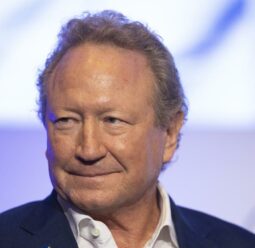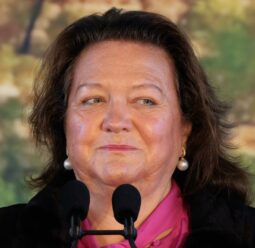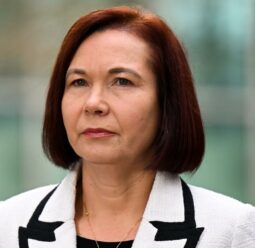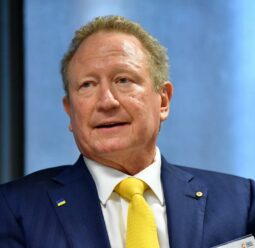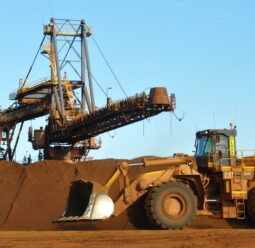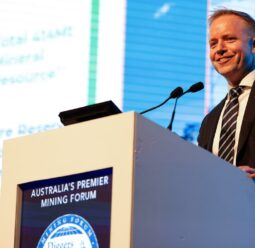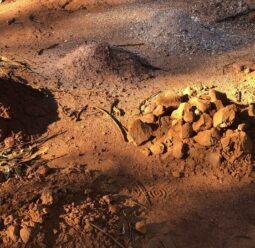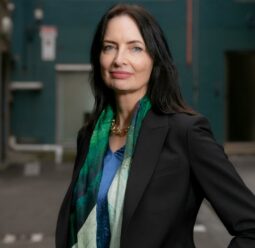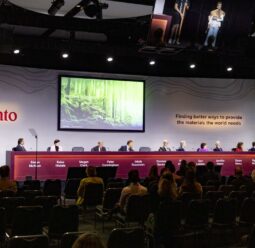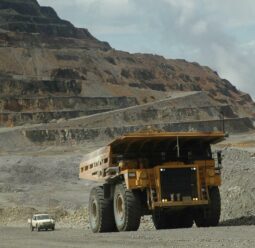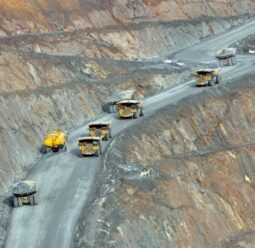An Australian mine has deployed the nation's first electric-powered excavator, created as part of a plan to decarbonise mining operations.
Fortescue Metals Group has received a "first strike" on executive pay as the iron ore miner unveiled plans to splash $1.1 billion on green hydrogen.
Some $2 billion in capital and other sweeteners could turn Australia from the world's quarry into a "mine-and-make''nation driving the battery supply chain.
Gina Rinehart's lawyers have attacked two rival mining dynasties' billion-dollar claims for iron ore riches in closing arguments at a high-stakes legal battle.
Carbon offsets should be used as a last resort and limited to Australia's heaviest polluters, conservationists warn the federal government.
A report has found India will reduce its dependence on Aussie coal in steel furnaces as the price of green hydrogen comes down and carbon penalties go up.
Mining companies are among big energy users bankrolling wind farms and other renewable energy projects to offset carbon emissions.
Rivals are rolling out ambitious industrial policies and Australia must match these on its own terms, a business group will tell a hydrogen summit.
The mining industry has warned the prime minister against taking the sector for granted and pushing investment elsewhere with "extreme" workplace laws.
Fortescue Metals Group has booked a lower full-year profit after a writedown, slashed the final dividend and shocked investors with another new CEO.
Imdex says while short-term conditions are subdued the tech firm continues positioning for stronger battery minerals demand requiring miners to dig deeper.
Pilbara Minerals reports a 326 per cent surge in net profit to $2.4 billion as the world rapidly electrifies and demands a secure supply of sustainable lithium.
Fortescue Metals Group has booked a lower full-year profit after a writedown, appointed a new CEO and added former CSIRO head Larry Marshall to the board.
Profits and dividends are down at BHP on lower commodity prices, but the mining giant says it is managing inflationary pressures better than its rivals.
A nickel explorer has industrial giants from Japan queuing for future supplies from under the red dirt out west as the battery minerals race accelerates.
Australia is urged to be bold in the race for high-purity lithium for electric cars and clean energy, as veterans and newcomers jostle for capital and ports.
Australia holds a third of the world's vanadium, an element that's key to a kind of battery that may be the answer to the long-term storage of energy.
Demand for iron ore and coal may ebb but critical minerals can provide for future generations, unless labour laws and investor uncertainty mess it up, BHP says.
Fortescue Metals Group has pledged to continue to invest in green technologies as key investment decisions loom for billionaire Andrew Forrest and his board.
BHP has posted a strong fourth quarter with annual production records at Western Australia iron ore, Olympic Dam and Spence, but warns of uncertain times.
A refinery in Gladstone will get a federal grant for a renewable hydrogen project that is key to the decarbonisation of Queensland's industrial heartland.
The federal government is contributing $32 million to a trial project swapping gas for hydrogen to power the emissions-intensive alumina refining process.
Chemicals giant Orica expects to be a winner in the latest boom because miners need tech to find new ore and explosives to blast critical minerals out of rock.
Global demand for Australia's critical minerals is giving Treasurer Jim Chalmers optimism about mining's future in a net-zero emissions world.
A mining conference has heard values-driven consumers don't want 'dirty' electric cars that use unsustainable minerals in their production.
Governments need to be bold and brave to increase supplies of materials for electric cars, solar panels and wind turbines, the mining industry says.
The mining industry has been warned investment plans are still geared to gradual climate action, leaving the world short on supplies for a swift energy change.
More than a quarter of a million new jobs could be up for grabs if Australia can supply factory-ready materials for the world's electric cars and clean energy.
A hub for Australian-made materials for the world's electric car batteries is in doubt after the federal government pulled the plug on a $120 million grant.
Nine industrial zones to "carpool" emissions and give gas a long-term role in the economy have been mapped by the industry with help from CSIRO scientists.
Plans for renewable hydrogen produced with Australian-made electrolysers are closer to commercial reality after the federal budget chipped in $2 billion.
 energy (general)
energy and resource
environmental issue
metal and mineral
mining
renewable energy
road transport
transport
energy (general)
energy and resource
environmental issue
metal and mineral
mining
renewable energy
road transport
transport
